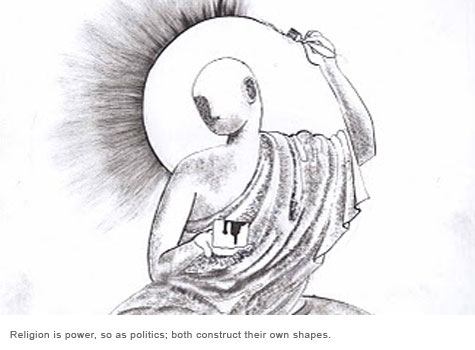Sandhya Eknelygoda has recently managed to get the attention of the United Nations about the case of the disappearance of her husband, Prageeth, on January 24, 2010. Still, there has been no progress made in learning of his whereabouts.
CPJ and many other media rights groups have been supporting Eknelygoda’s advocacy campaign on behalf of her husband. Her untiring efforts have spurred us on in a continuing campaign to pressure Sri Lanka’s government and international organizations like the U.N. in helping her find out where her husband is. Here’s her update on her efforts, translated from Sinhala by a friend of the Eknelygoda family:
Sandhya has been back in Colombo for more than a week. She had traveled to Geneva and appeared as a panelist at the 13th session of the United Nations Human Rights Council. Her March 11 session was called “Enforced or Involuntary Disappearance in South Asia–Voices from the Ground.” She was invited to Geneva and sponsored by the International Movement Against All Forms of Discrimination and Racism.
In Geneva, she met Human Rights Commissioner Navi Pillai on two occasions: once when she had a meeting with international nongovernmental organizations, and a second time at the panel discussion. Pillai said the Human Rights Council was very much aware of Prageeth’s case, and that they were taking the issue seriously and would continue to be involved in looking for him. Pillai said she would continue to press the Sri Lankan government for answers.
Here is a link is a link to an unofficial translation of her testimony to the panel.
She has also heard from Kishore Mandhyan, who works in Secretary-General Ban Ki-moon’s office. Mandhyan contacted her shortly after CPJ and four other groups called on Ban to address the Eknelygoda case.
For her next step, Sandhya fears she won’t be able to do any politically overt campaigning in Sri Lanka due to the increasingly restrictive political environment. But as a devout Buddhist, she wants to get other women whose husbands, fathers, and brothers have disappeared to carry out a series of religious campaigns across the country, smashing coconuts and invoking the curse of Kali Amma (the goddess of vengeance) on the government and those in power–a powerful gesture in the predominantly Buddhist country, and one that would embarrass the Rajapaksa government, which bases much of its claim to political power on its links to the country’s Buddhist roots.
While she is doing that, she wants international organizations to keep Prageeth’s issue alive in the international arena and bring it up every opportunity we get.
She feels the next important step for her case will come in June, when Sri Lanka’s Human Rights Commission will look into her case. She feels the commission will make a special effort since the UNHCHR’s Working Group on Enforced or Involuntary Disappearances has mentioned Prageeth’s case as in need of an “urgent action procedure.”
